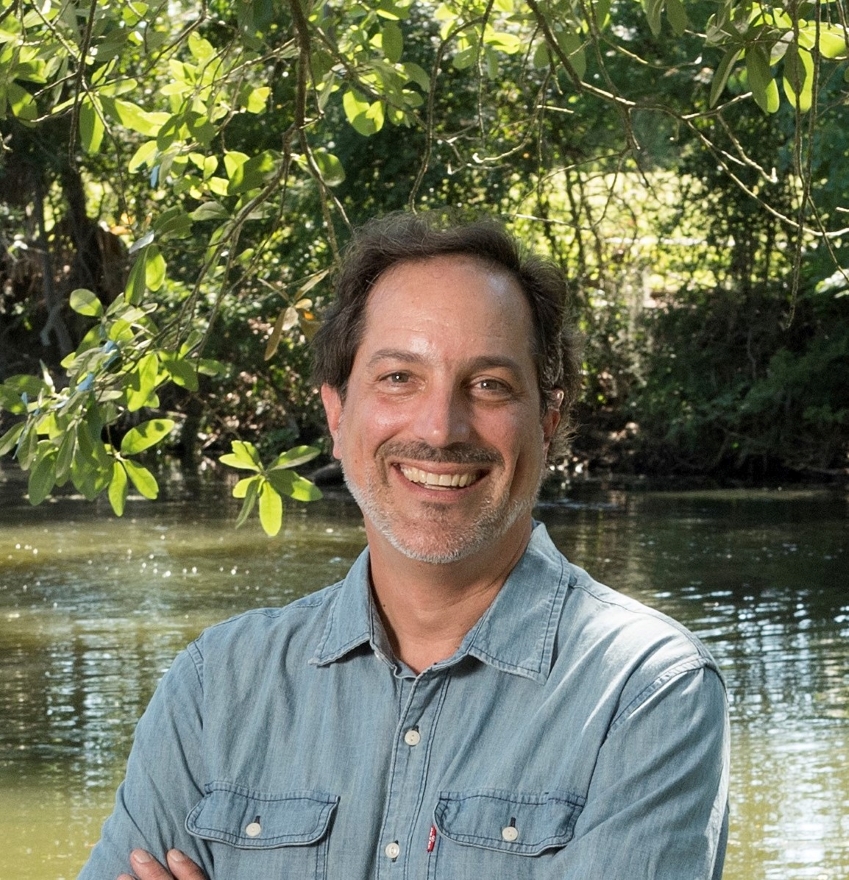Environmental Expertise. Career Clarity.
Passionate about environmental policy but not sure that you want to be a lawyer? Earn your Master of Arts in Environmental Law (MEL) in as little as one year from the Loyola University New Orleans College of Law. This 30-credit program will prepare you for rewarding roles in environmental sustainability, compliance, and natural resource management. Ideal for recent graduates and working professionals, our dedicated faculty and staff will help you personalize your plan of study according to your career aspirations. Graduates can apply their knowledge across many industries, including business, politics, construction, and more.
As environmental challenges in the Gulf and around the globe continue to rise, you have the potential to make a lasting impact on your community in industries and agencies that have never been more relevant. You’ll learn in the field through immersive experiences, from kayaking in the bayou, to studying the ecology and coastal erosion of the Mississippi River Delta, to spending a summer learning about endangered animals and coastal law in the Florida Keys.
No GRE or LSAT required to apply. Get started by emailing our admissions team today at ladmit@loyno.edu.
Please note that students in the Master of Arts in Environmental Law, and Health Law and Administration programs follow the Law School Calendar, not the Graduate Calendar.
Expedited Admit Requirements
Exceptional applicants who are Loyola undergraduate alumni and graduated from Loyola with a cumulative GPA of 3.0 or better, may be offered expedited admissions to either of the College of Law's Master's degree programs. Under expedited admissions, these applicants only need to complete the application and submit a statement of interest. Loyola graduates are guaranteed a merit scholarship award.
The College of Law reserves the right to request additional information from the applicant if it is determined to be necessary for the university to render an admission decision.
Degree Requirements
Loyola’s MEL degree requires completion of 30 semester credit hours and a thesis paper of publishable quality. The thesis requirement may be completed as part of an environmental course or by taking the graduate seminar in Health and Environment.
Admission Deadlines
Loyola Law will accept applications for Admission from October 15, 2025, through July 1, 2026. The application portal will promptly close on July 1, 2026, 5 pm CT.
Scholarship Opportunities
All applicants are automatically considered for merit-based scholarships, with consideration weighted toward their academic achievements and relevant professional experience.
Fill Out an Interest Form
Curious about obtaining your M.A. from Loyola and the College of Law? Fill out our interest form.

Career Outlook
Environmental law is an umbrella for many different areas of expertise, including clean air and water, land use, natural resource management, and urban planning. You can focus your education and future career on the areas that spark your interest. You'll prepare for jobs at government agencies, small and large businesses, and nonprofits, or you can apply your skills and creativity to start your own business. Examples of specific roles include:
- Policy analysis and research
- Environmental education and advocacy
- Regulatory and legislative design
- Environmental project management
- Technical assistance to government agencies for planning and strategy
- Regulatory compliance and enforcement
- Independent and political consulting
What Makes Loyola Law Right for You?
Get the support you need to take your next step.
Flexible
Offering an array of courses to fit your career aspirations.
Practical
Graduate in just one year, or spread out your studies over up to three years.
Accessible
No LSAT or GRE required to apply to the program.
Make the Gulf Region Your Classroom
As part of the Master of Arts in Environmental Law program, you’ll connect your studies to real issues facing the Gulf region in Louisiana and beyond. Through experiential opportunities, policy lab work, and independent research study, you will gain a deep understanding of environmental law as it applies to current events, legislation, and industry trends.
- Engage with community leaders, attorneys, faculty, and peers at the Center on Environment, Land, and Law and through advocacy projects for local and national community organizations and tribes in the Environmental Policy Lab.
- Get involved with panel discussions, roundtables, and field trips featuring subject matter experts on hot-topic environmental issues like endangered animals, disaster response, and climate change.
- Take non-law elective courses like Environmental Science, Environmental Philosophy, or Sociology of Disaster — among others — and gain a broad knowledge of the scientific and social factors that inform environmental policy decisions.

Meet the Program Director
For more than 20 years, Program Director Marianne Cufone has litigated major environmental cases and helped write and pass many significant federal, state, and local environmental policies. She is also the founder of Recirculating Farms, an organization that promotes building innovative, eco-efficient urban farming. Email Marianne at mcufone@loyno.edu to discuss the program and your specific career goals.
Professors Who Make an Impact
We’re proud to keep our class sizes small so you can get personalized support and build lasting connections. Meet some of the professors who will inspire your career.

Markus Puder
Areas of Focus: Environmental and Energy Law, International Environmental Law

Start Your Application
We can't wait for you to join us! Here's what you need:
- Completed program application
- A short personal statement explaining your interest in the program
- A university transcript from your undergraduate institution
- One letter of recommendation, which may be emailed directly to ladmit@loyno.edu (no letters of recommendation are required for Loyola graduates)
Every applicant is automatically considered for scholarship awards. No LSAT or GRE score required to apply. While you're waiting to hear back, please complete your FAFSA.
View the MEL Curriculum
The Master of Arts in Environmental Law curriculum is flexible to fit your career goals. Explore the full listing of required and elective courses to start imagining your potential.
Requirements (13 hours)
- LAW L858 Environmental Law (3 credits)
- LAWM L705 U.S. Law and Legal Analysis – one-week intensive before the regular semester begins (1 credit)
- Capstone project (3 credits) or LAWM L710 Graduate Seminar in Health and Environmental Law (3 credits)
- LAW L844 Administrative Law, LAW-L847 Legislation and Regulation OR an approved equivalent (3 credits)
- *One experiential offering, or other pre-approved equivalent offering or experience, such as:
*We require students to complete an experiential opportunity, which can be fulfilled in many ways (internship, externship (LAW L900), Environmental Law and Policy: Florida Keys course (LAW L976), independent study project (LAW-L899), outside employment, etc.) Note, this is not a specific credit requirement, but some of the opportunities do offer credit hours.
For the remaining credit hours necessary for the Master of Arts in Environmental Law degree, students may choose from a wide array of courses from law, environmental, non-law, and non-environmental offerings, (Note: generally, non-environmental and/or non-law courses are capped at six credits that apply toward the degree, unless otherwise pre-approved).
LAW ELECTIVES (17 hours)
(no more than 6 hours combined non-environmental and non-law)
- LAW-L819 Construction Industry & Sustainability Seminar (2 credits)
- LAW-L822 Bioethics and the Law (3 credits)
- LAW-L834 Environmental Justice (2 or 3 credits)
- LAW-L835 Natural Resources Law (3 credits)
- LAW-L837 Property and Land Use Seminar (2 or 3 credits)
- LAW-L838 Oil and Gas Law (3 credits)
- LAW-L856 State and Local Government Law (2 credits)
- LAW-L864 Admiralty 1 (3 credits)
- LAW-L879 Admiralty Seminar: Marine Pollution OR Intro to International Law of the Sea (1-3 credits)
- LAW-L886 Environmental Law Seminar (1-3 credits) (may take more than one)
- LAW-L900 Approved Academic Environmental Externship (1-3 credits - experiential)
- LAW-L911 Introduction to American Indian Law: Overlapping Jurisdictions (3 credits)
- LAW-L913 Disaster and Policy Law (2 or 3 credits)
- LAW-L914 Public Health Law (2 or 3 credits)
- LAW-L922 Toxic Torts (2 or 3 credits)
- LAW-L929 Energy and the Environment in International Law (2 credits)
- LAW-L975 Energy Law and Policy (2 or 3 credits)
- LAW-L976 S50 Environmental Law and Policy: Florida Keys (May Term, 3 credits - experiential)
NON-LAW ELECTIVES
(no more than 6 hours combined non-environmental and non-law)
Remaining course offerings, including those at main campus, with instructor approval and graduate level work added. Examples include:
- RELS-V265 Eco-Feminist Theologies
- PHIL-W245 Environmental Ethics
- PHIL-U243 Environmental Philosophy
- SOCI-A355 Environmental Sociology
- ENVA-A105 Foundations in Environmental Studies
- SOCI-X236 Global Environmental Crisis
- HIST-Q234 Technology, Nature and the West
For a fuller list of possible courses, review the topics below in the undergraduate bulletin:
Environmental courses
Food Studies courses
Business, Decision Science and Entrepreneurship
Political Science courses
Sociology courses
Environmental Law Programs
Training Advocates to Defend Environmental Equity

L.L. M. with an Environmental Law Concentration
J.D. students interested in environmental law may elect to earn a certificate of concentration.

MA Environmental Law
The Master of Environmental Law (MEL) graduate degree is for those who have a bachelor’s degree and are interested in learning about environmental law but who do not wish to practice law or obtain a law degree.

Joint Degrees
The Joint J.D. / LL.M. with Environmental Law concentration allows students to complete both their J.D. and LL.M. in Environmental Law in as few as three and a half years. Typically, Loyola Law students complete their J.D. degree and then stay an extra semester to achieve their LL.M. Students enrolled in the J.D. program at Loyola University New Orleans, College of Law, may jointly pursue the LL.M. with Environmental Law Concentration by completing added requirements during summer sessions, or in an additional semester.



